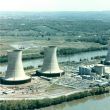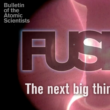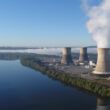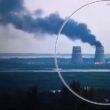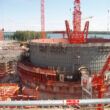GNEP’s new lease on life
By Alan Hanson, February 6, 2009
It’s a new day with a new administration, and the conventional wisdom is that the Global Nuclear Energy Partnership (GNEP), being a Bush administration initiative, is dead. Well, maybe! While some people changed roles on January 20 and there will certainly be changes in various U.S. policies, there’s much that hasn’t changed:
- The world, particularly the underdeveloped parts of it, still faces a growing thirst for energy;
- the fuel supply for much of the world is precarious–witness pirates hijacking oil tankers and Russia’s cutoff of natural gas to parts of Western Europe;
- the growth in hydrocarbon emissions continues unabated despite good intentions codified in the Kyoto Protocol;
- and those who wish to acquire, and even use, nuclear weapons still exist.
In other words, the serious problems of energy supply, energy security, climate disruption, and nuclear weapons proliferation are now problems that belong to the Obama administration. To the extent that aspects of GNEP were conceived to solve, or at least ameliorate, those problems, they may well be continued by the new administration albeit with different emphasis.
The Bush administration, which earned a reputation for acting unilaterally, never received the credit it deserved for creating GNEP’s international framework. In this case, Washington chose to seek collaboration as a means to attain its objectives rather than coercion. At last count, 25 nations had signed the GNEP Statement of Principles and 28 observer nations that may choose to join the partnership in the future attended a September meeting in Vienna. Is it likely that the Obama administration is going to tell all of these countries that the United States is no longer interested in continuing the international dialogue? I don’t think so.
If there has been any consensus in this roundtable, it’s that some sort of international nuclear fuel supply guarantee mechanism could be useful. Activity on this is proceeding on several fronts including GNEP, and again, I believe that it’s unlikely the Obama administration will stop such activities.
At his recent confirmation hearing, new Energy Secretary Steven Chu laid out some of the elements of the Obama plan for dealing with energy issues, including “a continued commitment to nuclear power and a long-term plan for waste management and disposal.” In response to a question regarding recycling, Chu stated, “Recycling is an option that we will be looking at very carefully.” But he cautioned that it would need to be done with an eye toward proliferation resistance. Hmm–sounds a little like GNEP to me.
But what was most encouraging to me at Chu’s confirmation hearing was his obvious understanding that our energy and environmental crisis can only be solved with an approach that I have described as “all of the above.” Every available option must remain on the table and be used. Certainly we must grab for the low-hanging fruit associated with energy efficiency, and we must invest more to bring renewables into the generation picture. But because renewables are by their very nature intermittent, they cannot have a huge impact unless–and until–we develop adequate energy storage technologies and drastically improve our fragile electricity distribution network. For the foreseeable future we must continue to rely upon fossil fuels and nuclear energy for most of our base-load electricity generation, and when climate concerns are factored into the equation, nuclear energy should be preferable to coal. In these difficult economic times, nuclear power has another important benefit–the number of jobs created per megawatt of installed capacity is far higher than for any other source of electricity generation.
So is GNEP dead? As an acronym almost certainly, but its aims will continue to be vital if we’re to meet the energy challenges of the future. To borrow from the famous French phrase, “GNEP is dead; long live GNEP!”
Topics: Nuclear Energy
Share: [addthis tool="addthis_inline_share_toolbox"]

